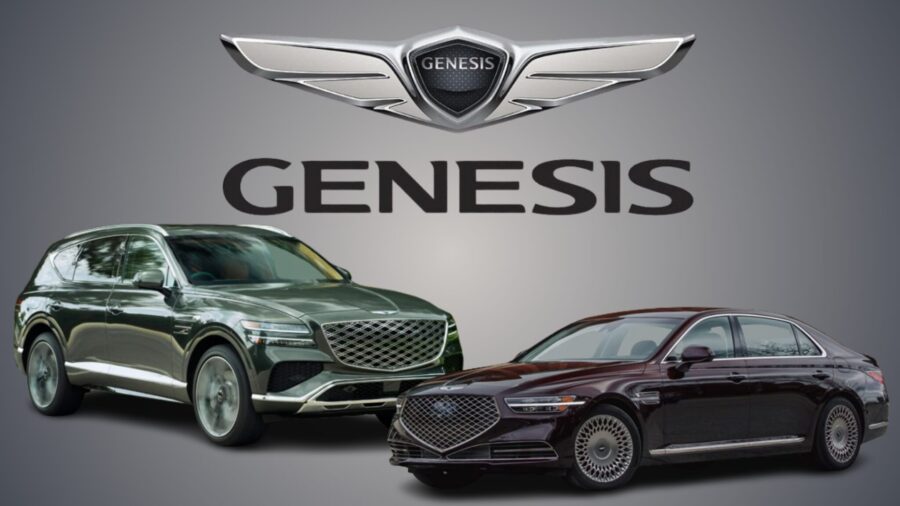4-Point Overview
- Hyundai is considering bringing its luxury brand Genesis to India, eyeing a premium space ruled by German giants.
- A rollout of 26 new models by FY2030 highlights Hyundai’s aggressive future planning, spanning ICEs and EVs.
- The carmaker is strengthening its rural and digital footprint while preparing for a new era of localisation.
- The CRETA Electric launch and Genesis evaluation mark Hyundai’s shift from volume to value-driven aspirations.
Introduction: Not Just Another Chapter—A Reinvention
For over two decades, Hyundai has been one of India’s most reliable mainstream players—offering solid cars, trusted service, and a near-unshakable position just behind Maruti Suzuki. But now, the Korean automaker seems ready to rewrite its script. At the heart of this shift is a bold thought: what if Hyundai could go premium?
Enter Genesis, Hyundai’s luxury arm, now under serious evaluation for an Indian launch. This isn’t just a badge experiment. It’s about transforming brand perception—and India could be the canvas for that reinvention.
Why Genesis, and Why Now?
Tarun Garg, Hyundai Motor India’s Whole-Time Director and COO, recently called this moment Hyundai’s “next chapter.” And it’s hard to argue. As Indian buyers evolve—from looking for value to seeking individuality and tech sophistication—luxury isn’t just for the elite anymore. It’s aspirational, and increasingly accessible.
In that context, Genesis offers something fresh. Unlike legacy luxury brands like Mercedes-Benz or BMW that rely on historical prestige, Genesis has built a name on bold design, cutting-edge tech, and a user-centric approach. Globally, it’s been appreciated for how well it breaks the mold, and Hyundai believes there’s room for such a player in India’s evolving premium segment.
Of course, launching a luxury brand in India comes with its own challenges. Infrastructure, service networks, and brand awareness will all need careful calibration. And that’s exactly what Hyundai is evaluating—whether the Indian market is truly ready for a new kind of luxury.

26 Models, One Goal—Be Everywhere
Hyundai’s Genesis plans aren’t happening in isolation. Alongside, the carmaker has lined up a mammoth 26-model launch strategy by FY2029–30, including six battery electric vehicles and 20 ICE models. This multi-year rollout is expected to be outlined in more detail during Hyundai’s Investor Day in October.
The backbone of this expansion will be the new Talegaon manufacturing plant, set to go live by FY2025–26. With this facility, Hyundai aims to ramp up both ICE and EV production. It’s a sign that Hyundai is not just scaling—it’s building depth.
From facelifts like the Alcazar to critical new additions like the Creta Electric, Hyundai is fine-tuning its line-up while simultaneously expanding the playground.
From Highways to Hinterlands
While Genesis might steal the headlines, Hyundai isn’t forgetting the masses. The company saw a 33% rise in rural CNG sales last year, pushing its rural penetration to over 20%. Launches like the dual-cylinder CNG Exter and entry-level eCNG Aura clearly indicate Hyundai’s aim: blend affordability with practicality, even outside metros.
This rural success isn’t just about volume—it’s about reach. Hyundai wants to ensure its cars and after-sales services are as relevant in smaller towns as they are in Tier 1 cities. And that long-game mindset is what could eventually help a brand like Genesis, too—if and when it arrives.
EVs, Charging, and the Digital Leap
Hyundai’s push toward electrification is no longer just a talking point. The CRETA Electric marked its first serious mass-market entry into the EV world, backed by an ecosystem that’s slowly taking shape. Battery pack assembly is already underway in Chennai, and discussions around localising cell production are progressing.
With 80 fast chargers already installed and a goal of over 600 in the next few years, Hyundai’s commitment goes beyond the vehicle—it’s building the entire experience. Digital touchpoints, like the myHyundai app, now boast over 2.6 million users, while Hyundai’s in-house insurance arm has issued over 4.5 million policies.
Clearly, Hyundai is betting on a future where convenience, connectivity, and confidence all come standard.
Conclusion: A Calculated Leap, Not a Gamble
Launching Genesis in India won’t be easy. The brand will have to carve space in a tightly held segment. But that’s what makes this moment significant. Hyundai isn’t chasing volume alone—it’s reaching for stature.
In a market that’s as complex as it is competitive, Hyundai’s readiness to evolve from a value-first manufacturer to an aspirational brand says something deeper. It reflects a company willing to learn, adapt, and more importantly, dream.
If Genesis does arrive, it won’t just introduce a new badge on Indian roads. It’ll introduce a new mindset—for both Hyundai and its customers.

